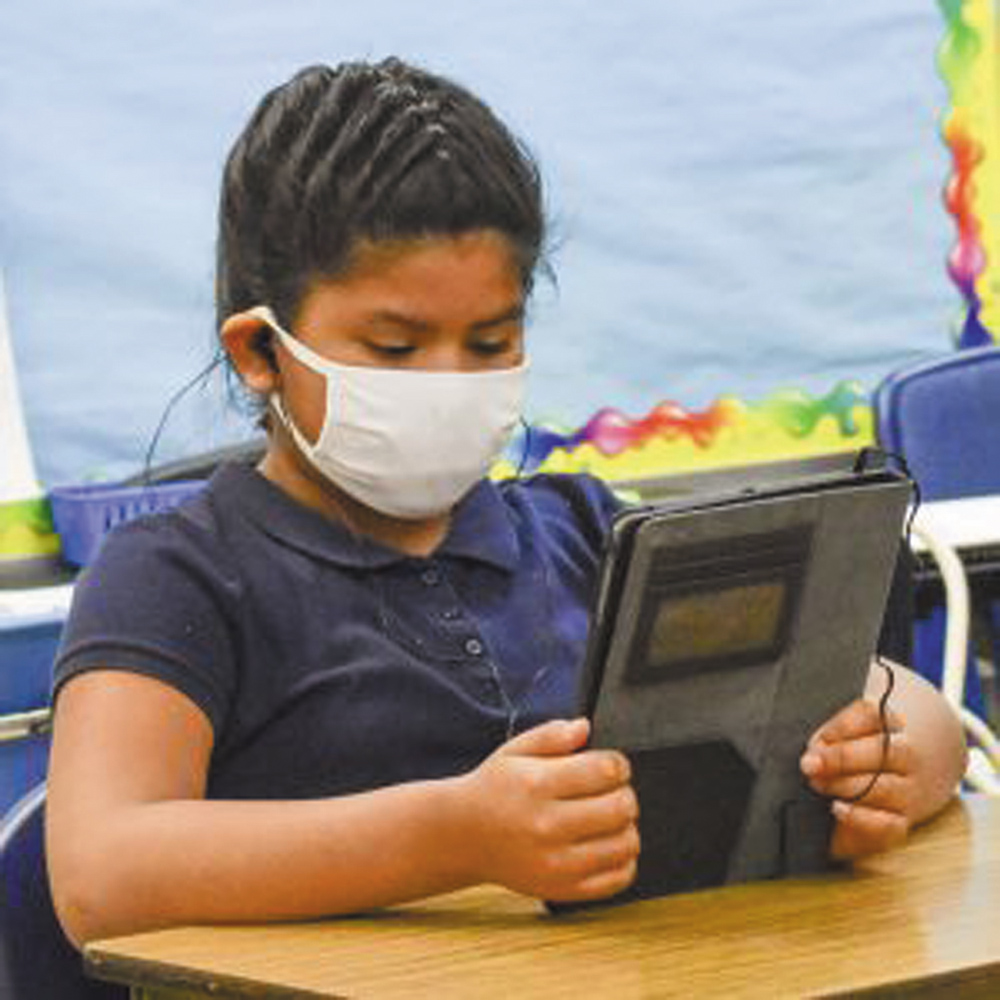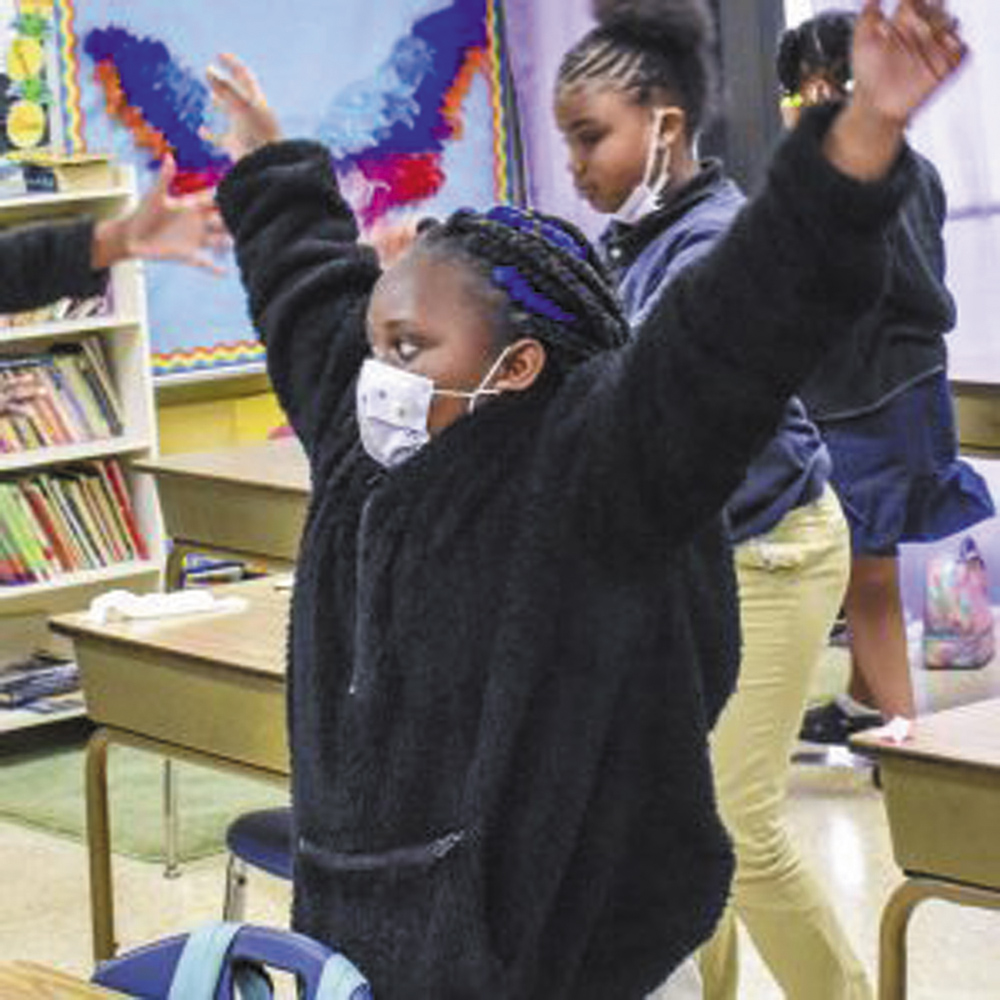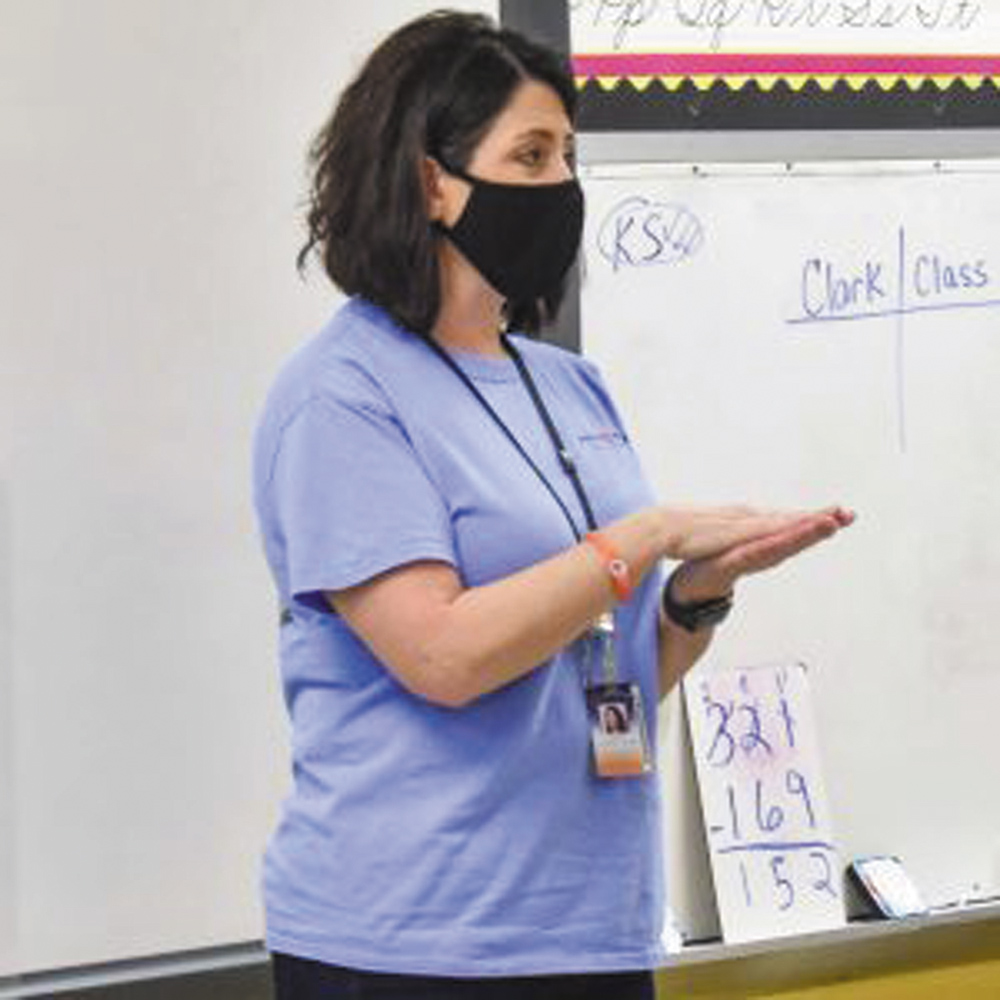Contributed bY
alabama cooperative
extension system (aces)
By Dustin Duncan
Body Quest warriors continued the fight against childhood obesity in third-grade classrooms throughout Alabama in 2021.
The staff at Alabama Extension at Auburn University Supplemental Nutrition Assistance Program-Education (SNAP-Ed) and SNAP-Ed educators throughout the state took to the front lines of the battle to provide nutrition education to more than 4,000 students.
In total, SNAP-Ed educators in Alabama reached 4,191 third graders in 41 counties, 89 schools and 242 virtual, in-person or hybrid classes. Body Quest resulted in significant differences in healthy nutrition behaviors, physical activity participation, nutrition knowledge and preference for healthy foods, according to pre- and post-assessment data.

Body Quest
Educators, assisted by six Body Quest Warriors — a group of animated characters designed by Alabama SNAP-Ed at Auburn University — are leading the charge to teach students about the power of making good food choices. The warriors engage students through a SNAP-Ed curriculum called Body Quest. The curriculum is an innovative childhood obesity prevention initiative that empowers third graders and their parents to makehealthier choices.
This statewide effort employs a combination of theory-driven classroom instruction, technology and evidence-based approaches to prevent and reduce childhood obesity. The Warriors challenge elementary youth to develop healthy behaviors through educational games played on Apple iPad apps.
Available for All
Due to the lingering COVID-19 pandemic, AU SNAP-Ed implemented a nine-week curriculum offered remotely by educators. This curriculum specifically targeted students whose in-person learning was disrupted by closures.
The virtual Body Quest program consisted of student education kits, worksheets, virtual assessments and prerecorded lesson videos. The videos introduced lesson concepts to students in an interactive, visual format. SNAP-Ed educators followed the video by joining classrooms virtually and leading students through hands-on activities to complete each lesson.
“Body Quest is a lively, interactive classroom experience for kids that we did not want to lose with virtual learning,” said Katie Funderburk, SNAP-Ed program coordinator. “Our team worked hard to create engaging videos for students to watch before their live virtual lessons with the local SNAP-Ed educator. The videos and virtual lessons were a hit with classroom teachers and students.”
Making Changes
SNAP-Ed educators were active in more than just the classroom to provide nutrition education.
Educators established strong relationships with Body Quest schools to facilitate 117 positive changes. This created healthier school environments for more than 13,800 students. To qualify as a Body Quest school, the institution must be composed of at least 50% of students receiving free or reduced priced meals through the National School Lunch Program.
Some of those changes to Body Quest schools included:
• Establishment of new food distribution sites, such as food pantries
• Increased availability of fresh, local produce in school cafeterias
• Established or sustained school gardens
• Improved opportunities for physical activity, such as hosting bike rodeos
• Provided tastings and signage throughout the school encouraging students to make healthy choices.

More Information
For more information about Body Quest or AU SNAP-Ed, visit LiveWellAlabama.com, or find Live Well Alabama on Facebook, Instagram, Twitter or Pinterest.

